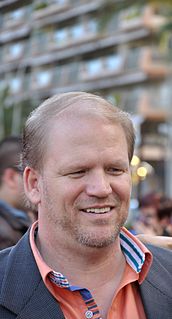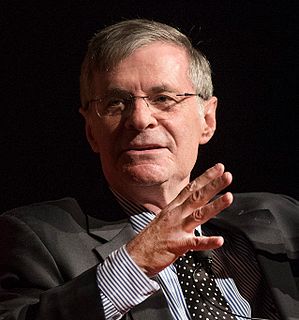A Quote by Stephen Covey
As long as you think the problem is out there, that very thought is the problem
Related Quotes
Clipper took a relatively simple problem, encryption between two phones, and turned it into a much more complex problem, encryption between two phones but that can be decrypted by the government under certain conditions and, by making the problem that complicated, that made it very easy for subtle flaws to slip by unnoticed. I think it demonstrated that this problem is not just a tough public policy problem, but it's also a tough technical problem.
Macho in a different sense, the kind of things that we think makes us a man. It doesn't really exist right now. I really don't want it to seem that I think it's a problem that women are in development, I don't think it's as problem at all, I just think it's an interesting time that we're in. And maybe long overdue - maybe television for a long time was made for men and it's long overdue.
So, obviously, autism - which is the key in this - is a very big problem. We need more studies about it. We certainly have to try to figure out what causes it and why and do something about it. But to tab it to vaccines, I think, is a real mistake. Not only is there no evidence, but what it leads to is larger numbers of unvaccinated children. And that's not only a problem for polio. It's a problem for a wide range of vaccine-preventable diseases.
The mystery of life is certainly the most persistent problem ever placed before the thought of man. There is no doubt that from the time humanity began to think it has occupied itself with the problem of its origin and its future which undoubtedly is the problem of life. The inability of science to solve it is absolute. This would be truly frightening were it not for faith.
Anytime we think the problem is 'out there,' that thought is the problem. We empower what's out there to control us. The change paradigm is 'outside-in' - what's out there has to change before we can change. The proactive approach is to change from the 'inside-out': to be different, and by being different, to effect positive change in what's out there - I can be more resourceful, I can be more diligent, I can be more creative, I can be more cooperative.
I don't think that our problem, our jobs problem, is fundamentally a problem of trade. I think it has much more to do with the fact that we have not sufficiently educated our population. We have not got out of this great recession with adequate stimulus and adequate fiscal and monetary policies over all.
If we want to impact hundreds - or millions - of people, we have to do things differently. If we look at the problem as an infrastructural problem, we cannot make an impact because it requires a lot of effort. But when we convert this problem into a knowledge problem, suddenly the problem is manageable.


































